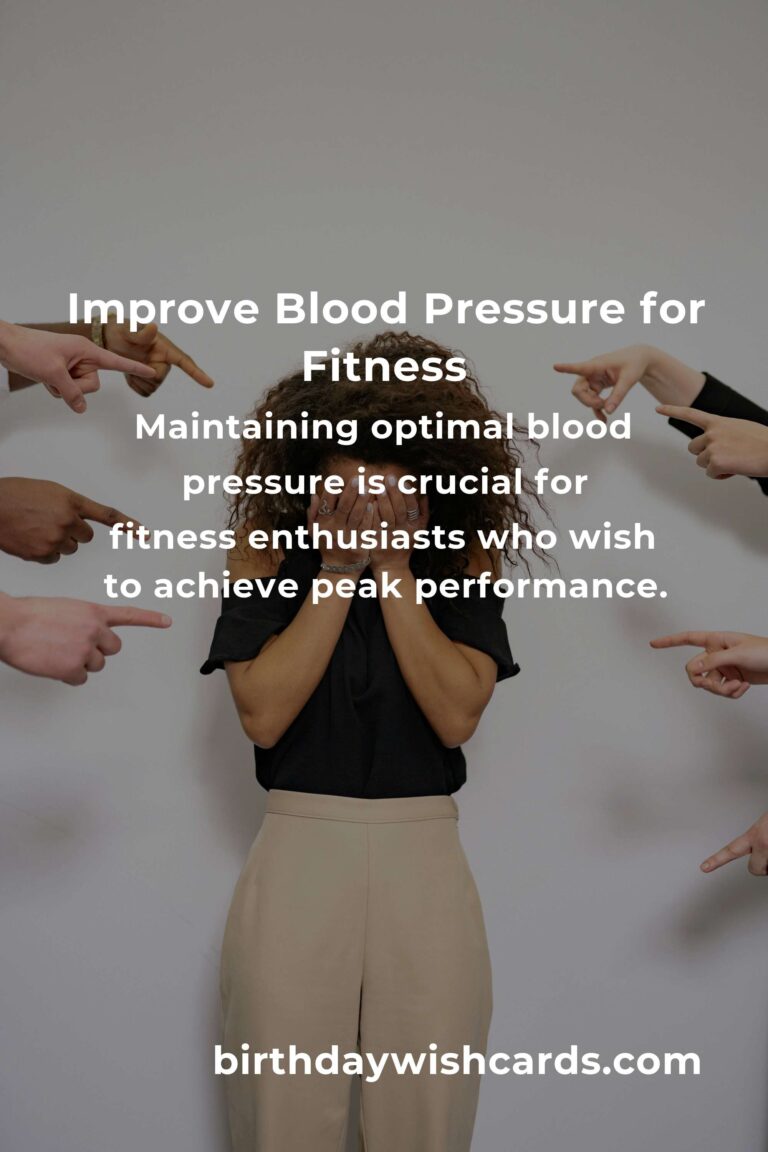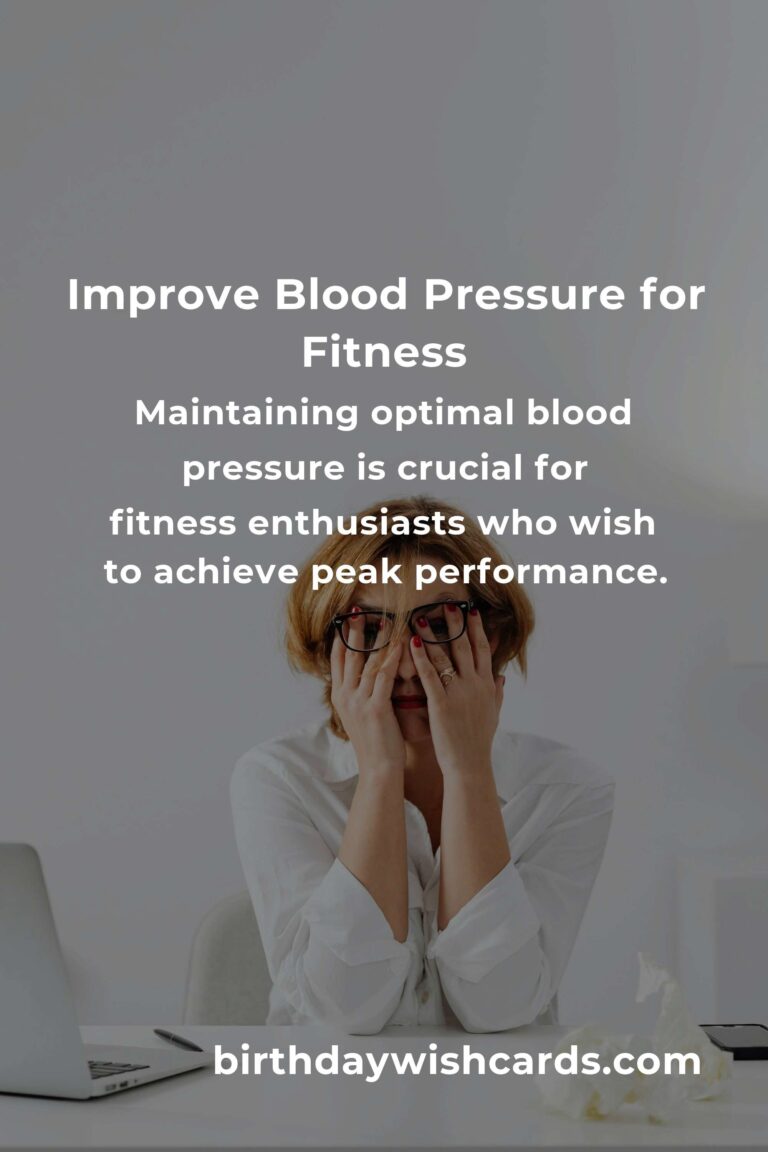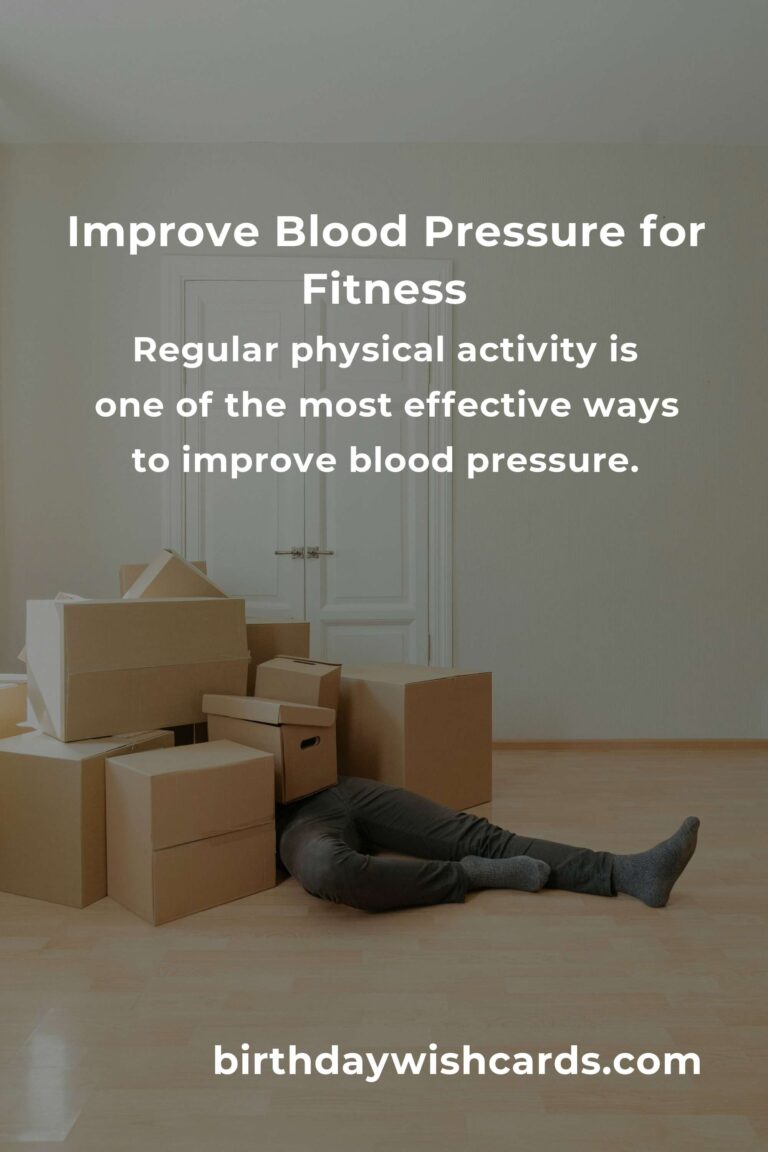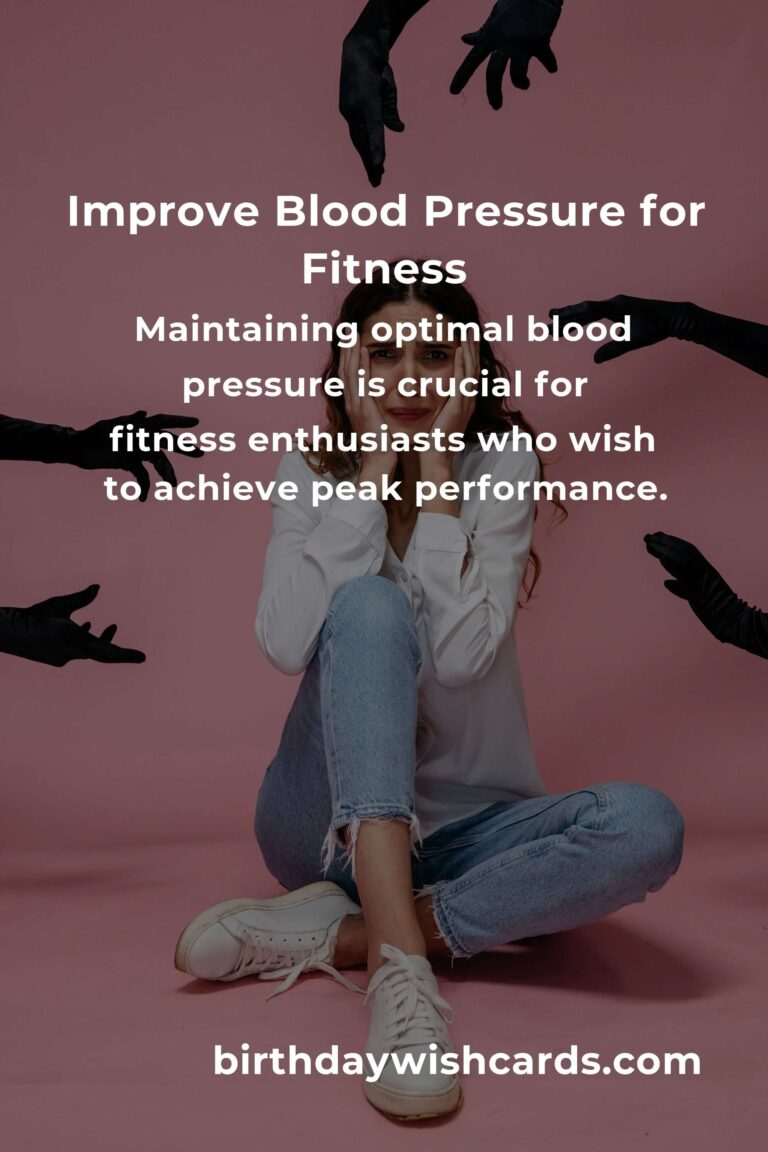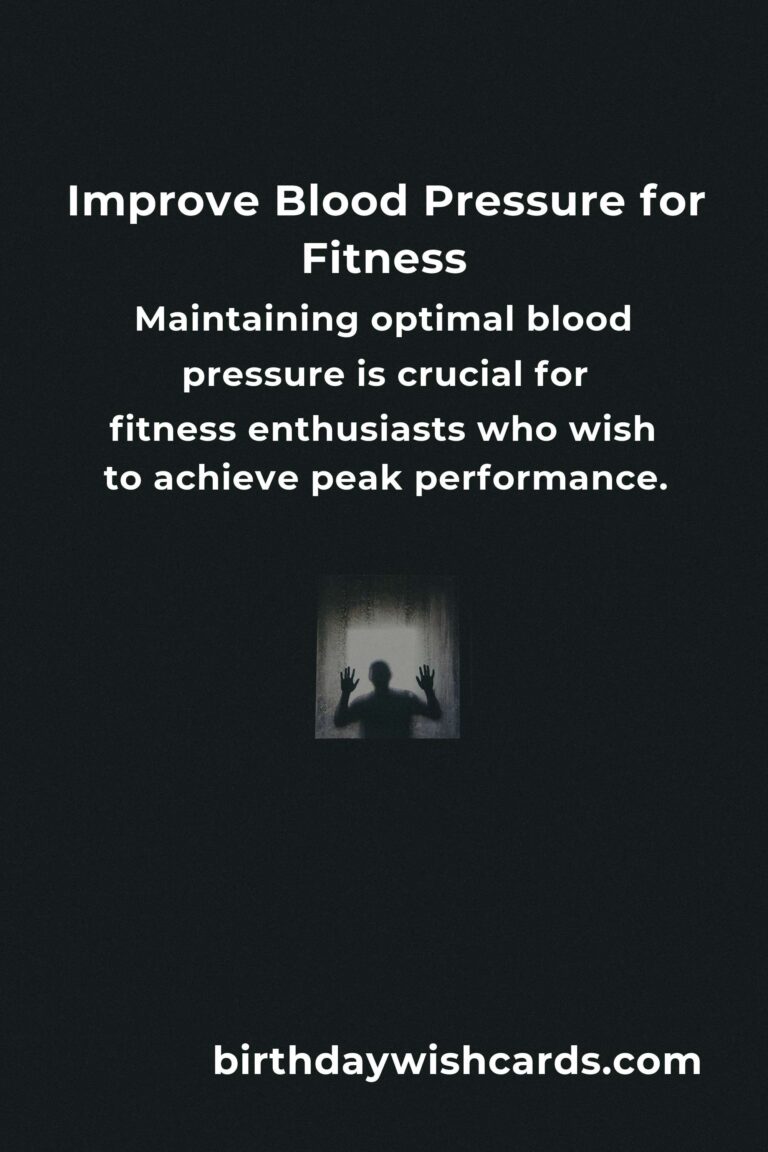
Maintaining optimal blood pressure is crucial for fitness enthusiasts who wish to achieve peak performance and ensure their overall health. High blood pressure, or hypertension, can lead to serious health complications, including heart disease, stroke, and kidney damage. Fortunately, there are several effective strategies that fitness enthusiasts can adopt to improve their blood pressure levels and maintain a healthy lifestyle.
Understanding Blood Pressure
Blood pressure is the force exerted by circulating blood on the walls of blood vessels. It is measured in millimeters of mercury (mmHg) and is presented as two numbers: systolic pressure (the top number) and diastolic pressure (the bottom number). Normal blood pressure is typically around 120/80 mmHg. Maintaining blood pressure within this range is essential for cardiovascular health.
Regular Physical Activity
Engaging in regular physical activity is one of the most effective ways to improve blood pressure. Exercise helps strengthen the heart, enabling it to pump blood more efficiently. Fitness enthusiasts should aim for at least 150 minutes of moderate-intensity aerobic exercise or 75 minutes of vigorous-intensity exercise each week. Activities such as jogging, cycling, swimming, and even strength training can be beneficial.
Healthy Diet and Nutrition
A balanced diet rich in fruits, vegetables, whole grains, lean proteins, and healthy fats can significantly impact blood pressure. The DASH (Dietary Approaches to Stop Hypertension) diet is specifically designed to help manage blood pressure. It emphasizes the consumption of low-sodium foods and the reduction of saturated fats and cholesterol.
Stress Management
Chronic stress can contribute to elevated blood pressure levels. Fitness enthusiasts should incorporate stress-reducing activities into their routines, such as yoga, meditation, or deep-breathing exercises. These practices can help lower stress hormones, ultimately reducing blood pressure.
Adequate Sleep
Getting enough restorative sleep is crucial for maintaining healthy blood pressure. Adults should aim for 7-9 hours of sleep per night. Poor sleep quality or duration can lead to increased blood pressure and other health issues. Establishing a regular sleep schedule and creating a restful environment can improve sleep quality.
Limiting Alcohol and Caffeine
Excessive alcohol and caffeine consumption can elevate blood pressure. Fitness enthusiasts should limit their intake of these substances to maintain a healthy balance. Moderation is key, and individuals should consult with a healthcare professional to determine appropriate limits based on their personal health needs.
Monitoring Blood Pressure
Regular monitoring of blood pressure is essential for fitness enthusiasts to track their progress and make necessary adjustments to their routines. Home blood pressure monitors are widely available and offer a convenient way to keep an eye on blood pressure levels.
Conclusion
Improving blood pressure is a multifaceted process that requires a combination of lifestyle changes, including regular exercise, a healthy diet, stress management, adequate sleep, and moderation in alcohol and caffeine consumption. By implementing these strategies, fitness enthusiasts can enhance their cardiovascular health and overall well-being. Regular monitoring and consultations with healthcare professionals can further support their efforts to maintain optimal blood pressure levels.
Maintaining optimal blood pressure is crucial for fitness enthusiasts who wish to achieve peak performance.
Regular physical activity is one of the most effective ways to improve blood pressure.
A balanced diet rich in fruits, vegetables, whole grains, lean proteins, and healthy fats can significantly impact blood pressure.
Chronic stress can contribute to elevated blood pressure levels.
Getting enough restorative sleep is crucial for maintaining healthy blood pressure.
#BloodPressure #Fitness #HealthyLifestyle #Exercise #Wellness


